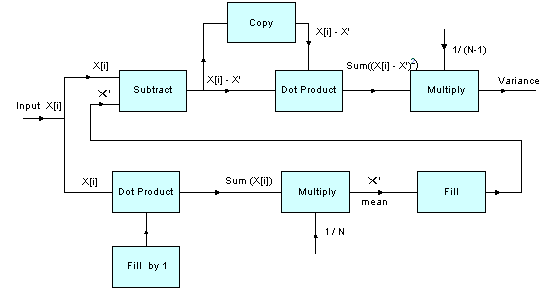- Description:
- Demonstrates the use of Basic Math and Support Functions to calculate the variance of an input sequence with N samples. Uniformly distributed white noise is taken as input.
- Algorithm:
- The variance of a sequence is the mean of the squared deviation of the sequence from its mean.
- This is denoted by the following equation:
variance = ((x[0] - x') * (x[0] - x') + (x[1] - x') * (x[1] - x') + ... + * (x[n-1] - x') * (x[n-1] - x')) / (N-1)
where, x[n] is the input sequence, N is the number of input samples, and x' is the mean value of the input sequence, x[n].
- The mean value
x' is defined as: x' = (x[0] + x[1] + ... + x[n-1]) / N
- Block Diagram:
-
- Variables Description:
testInput_f32 points to the input data wire1, wir2, wire3 temporary buffers blockSize number of samples processed at a time refVarianceOut reference variance value
- CMSIS DSP Software Library Functions Used:
-
Refer arm_variance_example_f32.c
